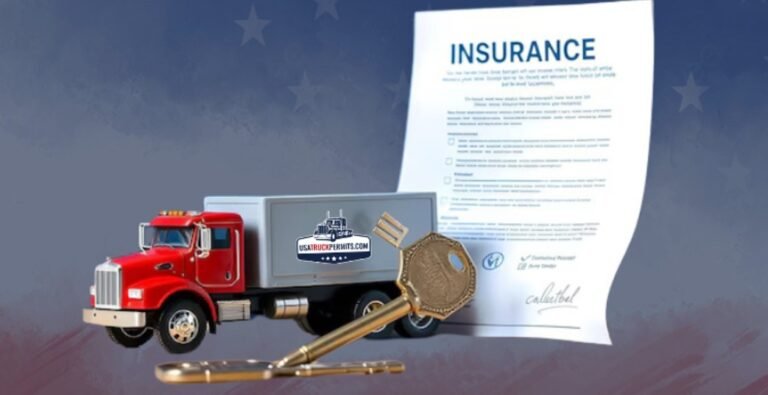Comparing Car Insurance Quotes: A Smart Guide for Getting the Best Coverage

Comparing Car Insurance Quotes
When it comes to car insurance,, looking around for the best quotation is more than simply a money-saving tactic—it’s a necessary component of safeguarding your car and yourself. Even with the same coverage, car insurance premiums might differ greatly from one firm to the next. This makes evaluating auto insurance quotes a vital first step in guaranteeing you obtain the correct coverage at the most reasonable price. We will discuss in this post the reasons for the need for comparing quotations, how to do it successfully, and the elements influencing your premium.
Why comparing car insurance quotes is important.
Simple cost reductions are the main reason one should compare vehicle insurance quotes. To determine your rate, insurance companies apply several algorithms considering your driving record, the vehicle you drive, and even your location. Comparing several quotations helps you to identify a scheme that meets your budget and provides enough protection.
However, cost is not the only factor that motivates consumers to shop around. Also differing among insurance companies are coverage choices. A policy that appears inexpensive at first may not offer the necessary coverage. Comparing quotes guarantees that you not only save money but also find the ideal mix of cost and protection for your car and way of life.
Factors Influencing Your Car Insurance Premium
A number of factors influence your auto insurance premium. Knowing these elements will enable you to compare quotes more sensibly. We break down the most common factors influencing vehicle insurance prices here:
1. Your driving records
Your driving record plays a crucial role in determining the cost of your vehicle insurance. Clean-record drivers are seen by insurance companies as less risky, so they charge them less. Conversely, should you have past claims, traffic tickets, or accidents, you could anticipate paying more.
A past of speeding citations, DUIs, or at-fault incidents could make insurers see you as more risky and result in higher rates. Even if you have a past minor incident, if you have been a careful driver for several years, you could be qualified for reductions.
2. Vehicle Kind You Use
Your premium is also influenced by the make, model, and age of your car. Because they are more expensive to fix or replace in the case of an accident, luxury cars, high-performance vehicles, and those with high repair expenses typically carry higher insurance rates.
Conversely, lesser market value or older vehicles could be less expensive to insure. Since advanced safety features like airbags, anti-theft devices, and collision avoidance systems are considered less dangerous to insure, they occasionally qualify for savings.
3. Gender and age.
Generally speaking, insurance firms charge younger drivers—especially those under 25—more premiums. Younger drivers statistically participate in more accidents, which causes insurers to view them as more risk. Research shows that men often engage in riskier driving behaviors, leading to higher premiums than women.
Your rates probably will drop as you get older and have more driving experience. Assuming a decent driving record, older drivers—especially those over 50—usually qualify for better rates.
4. Your location.
Where you live could have a significant impact on your auto insurance price. Generally speaking, urban areas—where there is more chance of vandalism, theft, and accidents—see higher premiums. Insurance companies consider local crime rates, accident counts in your area, and even traffic density.
On the other hand, since the risk of accidents and theft is reduced in rural areas, insurance rates are usually lower there. However, the specific neighbourhood in which you reside may influence your insurance rates, as certain areas tend to experience a higher number of insurance claims than others.
5. Your credit score
Many areas allow insurance firms to decide your premium using your credit score. The basis is that people with higher credit scores are statistically more likely to file fewer claims, so they are usually regarded as having less risk. Conversely, individuals with poor credit may be required to pay higher premiums.
Although credit-based insurance ratings are not utilised in every state where they are, be advised that your credit score will affect your insurance premiums. Maintaining a favorable credit score is consequently helpful not just for loans and mortgages but also for obtaining reasonably low insurance rates.
How to Compare Car Insurance Quotes Effectively
Knowing the elements influencing auto insurance rates now helps you discuss how to best evaluate quotations. To ensure you are comparing similar products, follow these guidelines:
1. Compare similar coverage levels.
Verify that the quotes you are evaluating have the same kinds and degrees of coverage. What car insurance policies offer can vary substantially. You might, for instance, contrast quotes for:
Both bodily injury and property damage are covered under liability coverage.
Collision coverage
Comprehensive coverage
Personal injury protection (PIP)
Uninsured motorist coverage
You want to make sure you are matching the same kinds of coverage with comparable limits; thus, a less expensive quote that does not offer enough protection will not persuade you.
2. Know Your Available Deductible Choices
Before your insurance starts to pay, you pay out-of-pocket expenses known as the deductible following an injury. Usually, a greater deductible results in lower rates, but if you must make a claim, you should ask yourself if you can afford the higher deductible comfortably.
When comparing quotations, make sure to check the deductible associated with each coverage. Although a low deductible would sound great, it might raise your rate. Conversely, a larger deductible would lower your rate but also result in more out-of-pocket expenses should an accident strike.
3. Search for discounts.
Many insurance companies provide a range of discounts meant to lower your rate. Multi-policy discounts, which apply if you have multiple policies with the same insurer, such as house and auto insurance, are among the most frequently used discounts.
Safe drivers, or those with clean records, receive discounts.
Low-mileage discounts are available for individuals who drive less than a designated annual mileage count.
Young drivers with stellar records can receive student discounts.
Ask every insurer about possible discounts; then, incorporate these in your comparison to guarantee you are obtaining the best bargain.
4. Review the fine print.
Review the policy’s fine print before deciding on insurance based on a quote. If the lowest quotation comes with concealed exclusions or coverage restrictions, then it might not necessarily be the best deal. Search for any exceptions (like restrictions on rental car coverage, for example) that might affect your needs down the road.
Also review the claims procedure. Is the insurance known for its ease of use and responsiveness? When you really need low-cost coverage, you want to be free from being caught with one that is challenging to use.
Using online tools to compare car insurance quotes
Online comparison tools are among the simplest means of contrasting auto insurance quotes. Websites including Policygenius, Compare.com, and The Zebra let you enter your data and get several estimates from different insurance companies all at once. By compiling data from several companies in a few minutes, these solutions can save you time and effort.
Although these tools are useful, they may not catch every discount or policy detail, so it’s best to contact insurance companies directly to get the most accurate picture.
You are collaborating with an Insurance Agent or Broker
Working with an insurance agent or broker can assist you in comparing quotations for a more customized strategy. While brokers are independent and can evaluate quotations from several sources, insurance agents serve particular businesses. Walking you through the insurance options, a broker or agent can assist you in grasping the coverage and make sure you are making a wise choice.
Agents may also help with policy bundling or discount searches for which you might not have found them on your own.
Conclusion
Though it seems like a chore, comparing auto insurance quotes is well worth the work. Shopping around guarantees that you are obtaining the best bargain for the coverage required. Remember that the least expensive choice is not always the best; balance cost with the kind and degree of coverage given. Whether you evaluate quotes online, through an agent, or with a broker, knowing your alternatives will help you to make a wise decision that offers peace of mind without sacrificing money.






